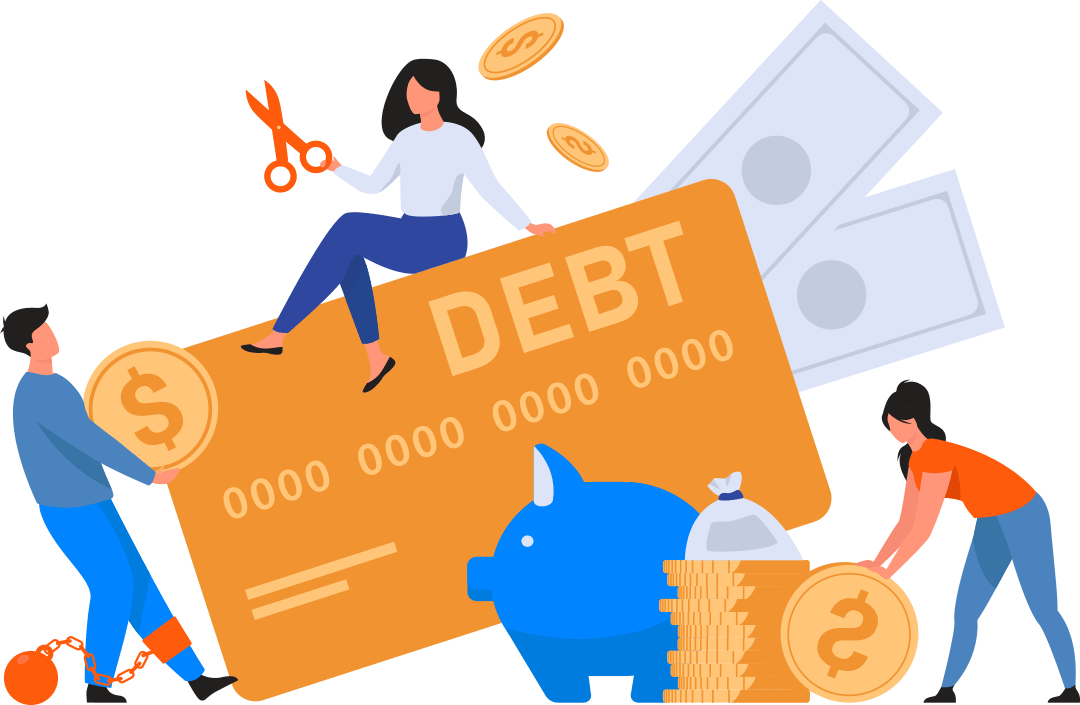Stop Spiralling Into Debt With These 5 Tips
By Ross Marshall. Posted: August 2021

For many, getting out of debt is not an easy thing to do. This is usually because they always get caught up in a debt spiral. But like all financial hurdles, there is a way to get out of debt and into a more stable financial situation. However, before getting started with breaking the debt cycle, it’s also important to remember that it will take time. The same way that getting into debt doesn’t happen overnight so does getting out of it.
So, how does the debt spiral begin?
There are plenty of ways of how debt slowly worms its way into your finances. It can begin through a student debt loan followed by credit card debt after school. Then, there’s also home mortgage debt and other loans that need to be paid regularly. But, more than these debt consolidations, sometimes the problem lies with the individual themselves. For instance, there are cases that when monthly payments start to decline due to an increase in income, their rate of spending also increases. And when their spending is wholly relying on credit, they are bound to spiral deeper into debt.
To break this cycle, below are some essential tips.
1. Stop Borrowing Money
One of the biggest culprits when it comes to consumer debt are credit cards. That’s why the first thing you need to let go of to start your debt recovery is by deciding to throw the card away. Instead, start paying in cash, writing checks, and using no-fee debit cards. This way, you have a much better way of tracking your spending. Moreover, it gives you a definite limit on your spending.
2. Track Your Income and Expenses
Many financial strategies always recommend tracking the ins and outs of your money. Yes, this means that you have to think about living on a budget. Such is the reality of those without an unlimited income. However, you also don’t have to track every expense. That will eventually wear you out, further discouraging you from doing the task. Instead, you can periodically review your income and expenses and track those that will allow you to see your general spending. The goal is to know whether you are spending more than what you are bringing it.
3. Reduce Your Expenses
Here, you’ll have to make substantial and meaningful reductions to your expenses. It’s a task that will leave you with a significant amount that will help you with your repayment plan. You can create either big or small lifestyle changes where you can still live comfortably while slowly but surely paying off your debt. Minor changes include taking public transportation or walking instead of driving and spending on gas. Big changes include moving to a less expensive home if yours is currently taking too much out of your budget.
4. Cut Back On Unnecessary Spending
This is much easier to do if you are already tracking your spending. You’ll see where your expenses are going and identify whether they are for your needs or wants through it. But, for those who are not keen on keeping track, it might be challenging to do this task. For this, we recommend changing your payment method, as we mentioned previously. For instance, you are much more aware of your spending when using cash instead of credit cards since you’re taking them right out of your pocket.
5. Make a Debt Repayment Strategy
Tracking and reviewing your spending can also help you determine how much you can afford to put into debt repayment. You can try two strategies: debt avalanche and debt snowball. In the first one, you’ll be paying off the debts with the highest interest first, resulting in the most savings over time. However, this method can take a long time, especially if you have large balances due. The second option, debt snowball, is paying as much as you can towards low-balance debts and paying the minimums on the other debts. While not the most logical between the two options, there is faster progress and can likely encourage a habit of eliminating debt.
Break The Cycle of Debt With Raeburn Advisors
Being in a debt spiral is not the end of the world yet. With the right strategies in spending and saving your money, you can still recover. But if our tips above are still overwhelming for you, let certified financial advisors help you climb your way out of your debts.
Working with Raeburn Advisors, you’ll get practical and straightforward financial advice that will help you with debt repayment and saving your money so you can finally break free from the cycle of debt. So schedule an appointment with us today.